Emmaline Zanelli (b. 1994) is an emerging artist based in Adelaide and Melbourne, Australia.
Her work combines various media mixed with photography, including temporary sculpture, installation, performance for camera and costume in explorations of dreams, emotions, bodies, and the people around her. She presents scenes from a kind of personal universe, as well as abstracted re-enactments of anecdotes from anyone she meets. Her influences range from my family, DIY home solutions, waste and ridiculous manipulative advertising to prehistoric life and depictions of future integrations/coexistence of humans with artificial intelligence in pop culture. In creating her pieces, Zanelli combines these references from the outside world with her fantasies to fabricate scenes and characters from alternate realities using whatever she can find. An overarching theme of Zanelli’s work is the idea we can manipulate and reshape the visual world that surrounds us in order to explore one another in different and meaningful ways. Often a particular work is aimed to communicate directly to a specific person or scenario through both the process of creation and the final image. Through a use of collaged photographs and a frenetic or unfinished aesthetic, Zanelli seeks to imbue her work with a sense of energy, curiosity, restlessness and playfulness.
Zanelli completed a BA Visual Art & Design in 2015. Her photographic work has been exhibited around Australia in galleries including the Perth Institute of Contemporary Art (WA), Stills Gallery (NSW), Bus Projects (VIC), and Hugo Michel Gallery (SA). A selection of her work has been acquired by Artbank Australia and she has been featured in the British Journal of Photography. In 2017, she travelled to London as a resident artist at the Slade School of Fine Art and in January 2018 was invited to give a public reflection on the work of iconic Australian photographer Pat Brassington at the Art Gallery of New South Wales. She is currently based across Melbourne, VIC and Adelaide, SA.
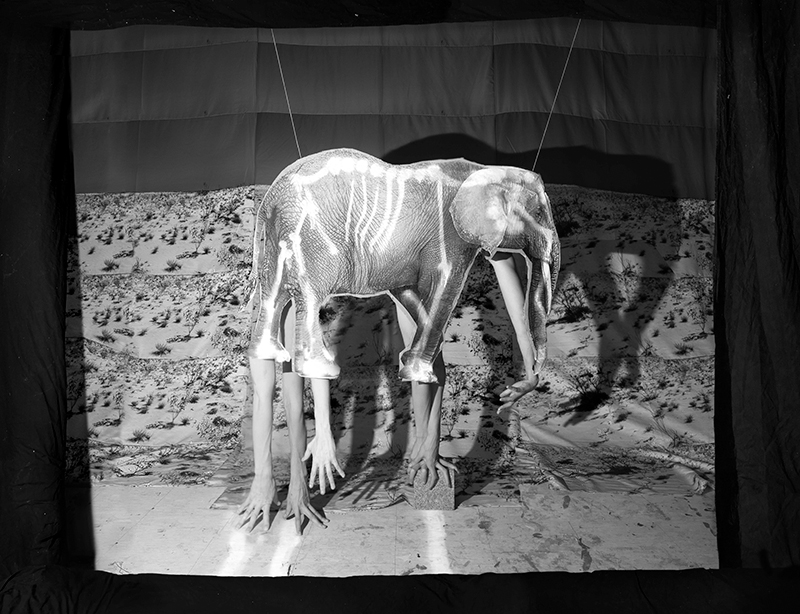


Looks Like A Fish, Tastes Like A Lizard
– A wife and husband have been searching Queensland for reptiles that lived over 150 million years ago in Australia’s inland seas. Independent of any employer or
institution, they have done this for 15 years. Recently, however, they uncovered a complete Ichthyosaur – a rare and important discovery drawing international
attention and large monetary offers for casts. When I met this couple and asked them to tell me about their discovery, he replied ‘we found an Ichthyosaur. Looks
like a fish, tastes like a lizard.’ Then they left. –
This project is exploring research of prehistoric life, as performed by a domestic paleontology enthusiast. Collected stories of scientific experiments conducted in the paleontology lab and animation studio are used as inspiration for scenes of backyard discoveries. A polystyrene microscope ready for printed live blood cells, an Ichthyosaur built of paper maché National Geographic images swimming above the piano, characters using a stock photo elephant to imagine the gait of a sauropod, plasticine bones in a vinyl creek bed waiting for scanning to become animated. Latent experiments. Independent of any employer or institution. Processes used in real-world professional environments to imagine and decipher life before humans are referenced and used throughout the work, melded with home-invented methods.
These scenes are investigating parallels between homemade pseudoscience and highly regarded scientific innovation, with a specific focus on moments where intuitive body movement and image-making technology have been used to explore the edges of human knowledge. Imitation of others and costuming are key themes in Zanelli’s photographic practice, but this project is exploring these themes when they are used to bridge a divide much broader and more mysterious than between people.
Looks Like A Fish, Tastes Like A Lizard uses images to materialize constructed scenes of performed research where it is uncertain if the character is researching, or is part of the specimen. At its core this project reflects on our collective perception nature and the – at times ridiculous – human endeavor to understand and recreate it.
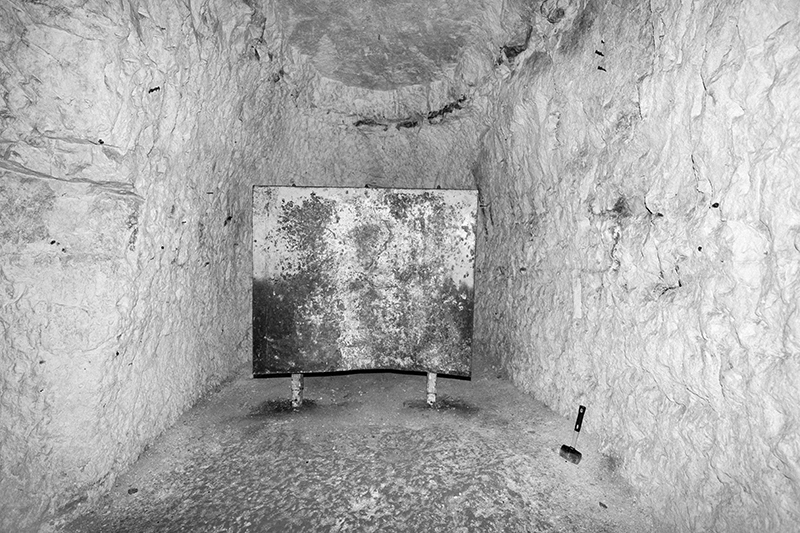



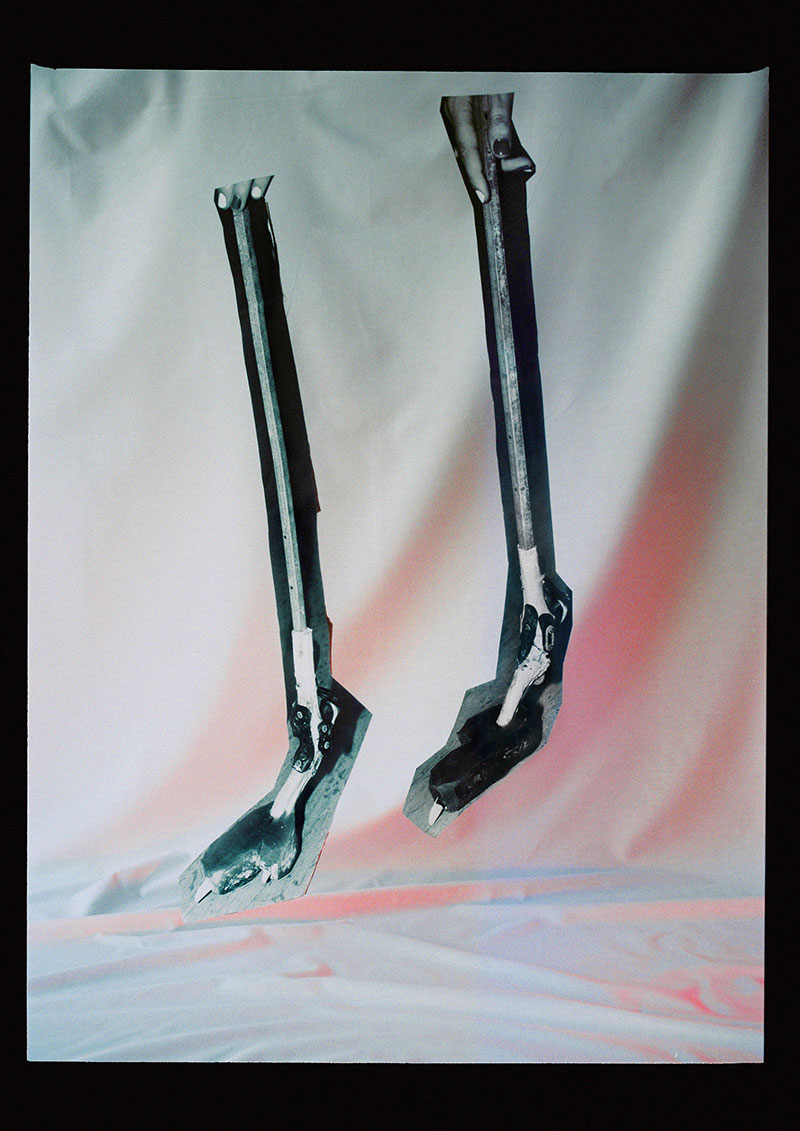





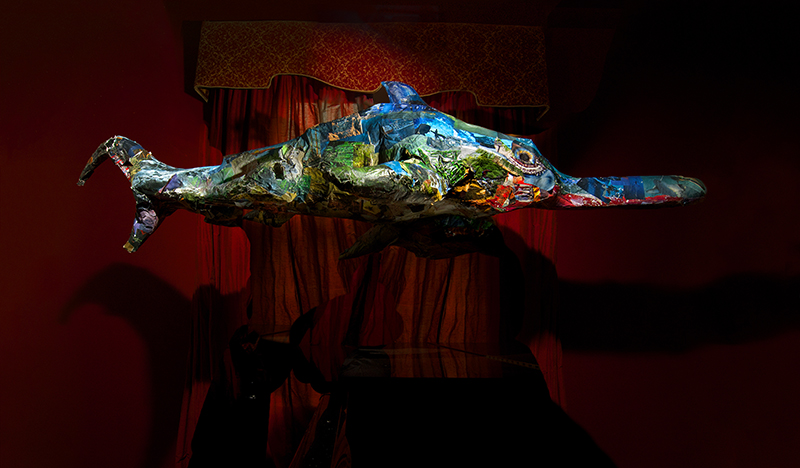
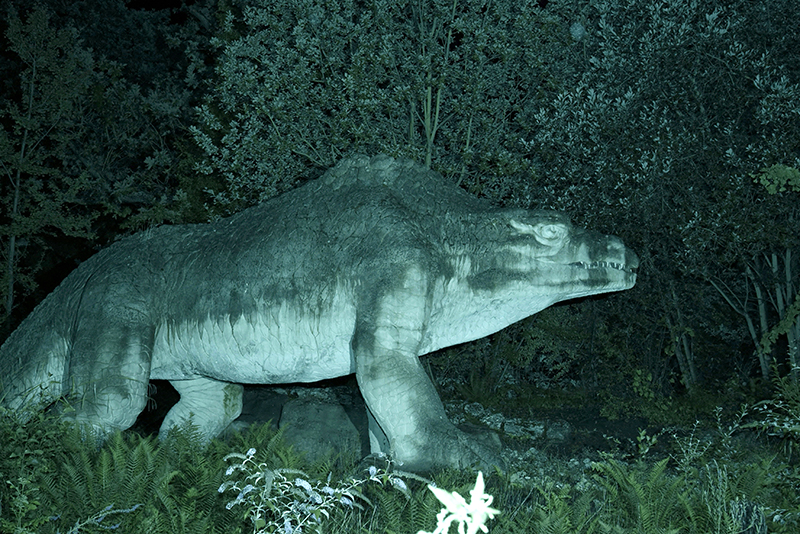
To view more of Emmaline Zanelli’s work please visit her website.